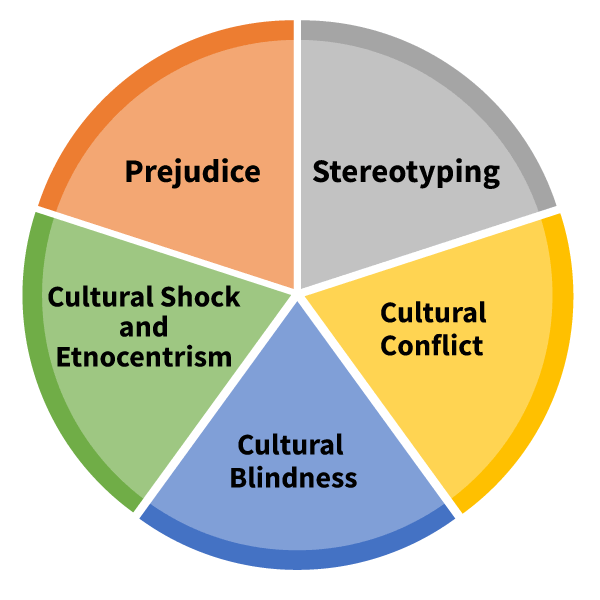Disabling Barriers/Inhibitors and Empowering Cultural Communication
2. Inhibitors to developing cultural competence
Please click each of these inhibitors to discover more

Prejudice
Prejudice refers to having a deeply held reaction often negative about another group or person regarding their skin colour, ethnic group, religion or social standing with no regard for the worth of the person as an individual.
Stereotyping
Stereotyping is attributing certain beliefs and behaviours about a group or an individual without giving adequate attention to individual difference. E.g. All Asian people are hard working.
Cultural Blindness
Cultural blindness is the tendency to ignore all differences among cultures, to act as if these differences do not exist and as a result to treat all people the same, when in truth each person is an individual with unique needs.
Cultural Conflict
Cultural conflict is a perceived treat that may arise from a misunderstanding or expectation between clients and nurses when either group is not aware of cultural difference.
Cultural Shock
Cultural shock is the feeling of helplessness, discomfort and disorientation experienced by an individual attempting to understand or effectively adapt to another cultural group that differs from their own practice, values and beliefs.
Ethnocentrism
Ethnocentrism is the belief that our own culture or ethnic group is at the centre of the world, is normal or even superior and that others are strange or inferior. Ethnocentric nurses are unfamiliar and uncomfortable with anything that is different from their culture.
